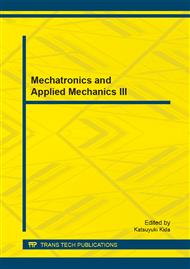p.568
p.575
p.581
p.586
p.590
p.595
p.603
p.611
p.616
Study on Hazard Evaluation of Smart Grid Based on Credibility Entropy Evaluation Model
Abstract:
With the development of smart grid construction enter the substantive stage, the security problems in operation has been paid to more and more great attention .To the possible sources of danger in the operation of smart grid, the paper has proposed the evaluation index system of hazard source, raised the concept of risk degree and its measurement methods. Based on the credibility theory, the paper also proposed the credibility entropy weight coefficient evaluation model, then made the analysis of hazard smart grid from both the frequency of occurrence and the degree of influence with the actual situation. thus under the corresponding confidence interval , estimated the risk level of smart grid which basing on the credibility entropy weight coefficient evaluation model. Finally, through the analysis of cases, verified the science and feasibility of the credibility entropy weight coefficient evaluation model.
Info:
Periodical:
Pages:
590-594
DOI:
Citation:
Online since:
February 2014
Authors:
Keywords:
Price:
Сopyright:
© 2014 Trans Tech Publications Ltd. All Rights Reserved
Share:
Citation:


